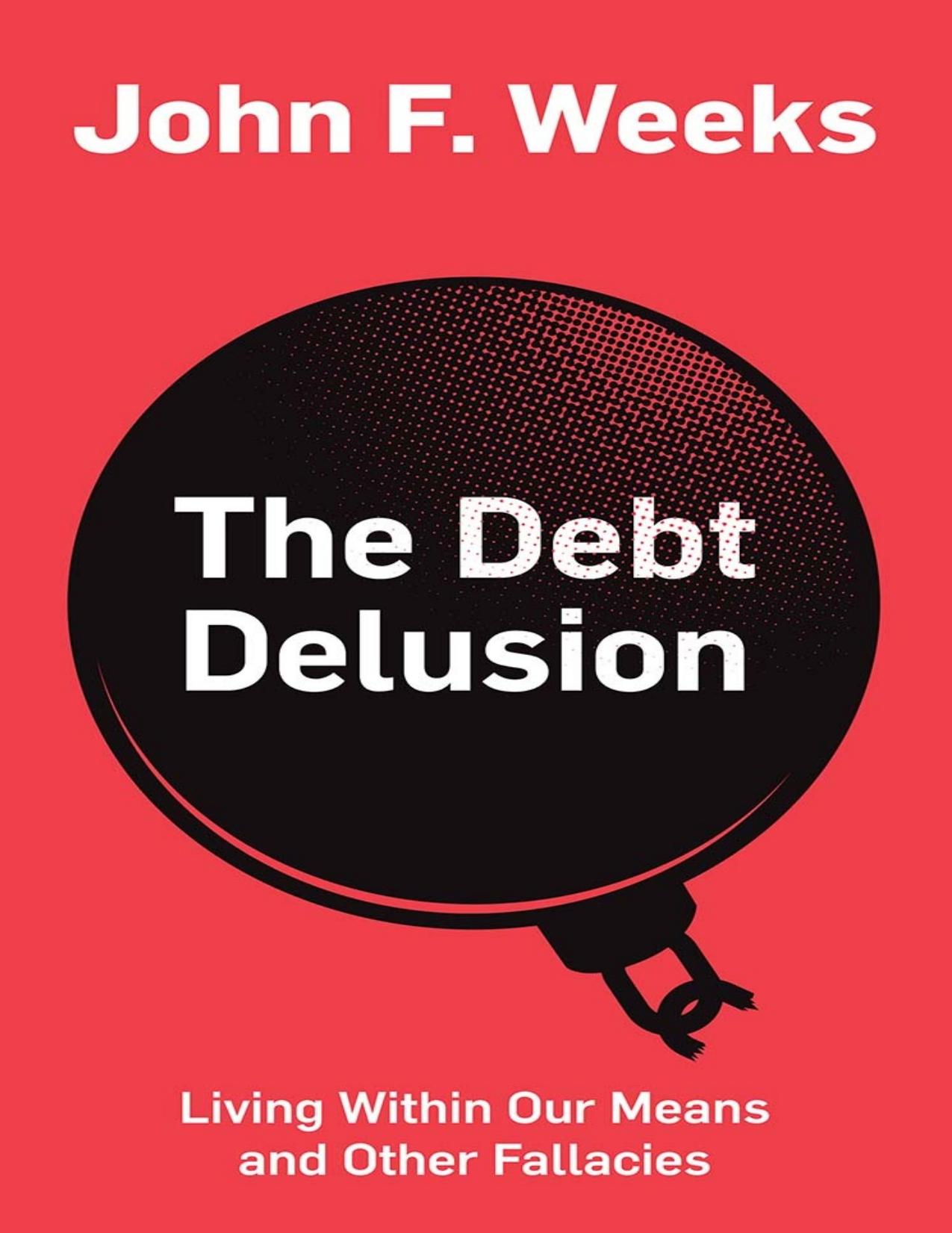The Debt Delusion by John F. Weeks

Author:John F. Weeks
Language: eng
Format: epub, pdf
ISBN: 9781509532964
Publisher: Wiley
Published: 2020-01-13T00:00:00+00:00
From Myth to Reality
Many politicians promote the argument that in recessionary times, when our government’s budget falls into deficit (or deeper into deficit), “belt-tightening” becomes necessary or we discover as a country that we “live beyond our means.” As explained in the first myth, national governments with their own currencies determine their means themselves, through tax policy and borrowing. The question then arises as to what determines how much a government can spend when it sets its own means. A disarmingly obvious answer presents itself – the collective judgment of the electorate determines what a democratic government should spend.
This book focuses on advanced countries with developed market economies. The constraints on public spending in middle- and, especially, low-income countries with large rural populations lie beyond its scope. Among the advanced countries, levels of income vary substantially. For example, at the end of the 2010s in the European Union, Romania’s income per head barely reached $11,000, less than a fifth of Denmark’s. With notable exceptions (the United States) the share of public expenditure in GDP rises with the level of development and income per head.
To a great extent this relationship reflects the capacity to tax. In richer countries almost everyone is an employee and almost all production comes from corporate business and government itself, both easily covered by tax collection. Collecting taxes in low-income countries is problematical because of the large portion of self-employed. These structural characteristics of countries provide the context for the collective judgment of the electorate on how much to tax and spend.
Within structural constraints of level of development, in a democracy the representatives elected by the citizenry determine the level, quality and coverage of social services. Public-sector provision of those services provides a powerful vehicle to counter the unequal and discriminatory provision characteristic of private markets. A political decision to reduce public services does not reduce the need for those services in society as a whole. Reducing public services results in a loss of access by households with low incomes, which lack the income to purchase the same or similar services from private providers.
Be it elderly care, health provision, educating adults and children, or transporting people, reduction in social expenditures “saves money” while canceling that monetary saving through the form of lower health of citizens, a less educated population, and lower geographic mobility. Indeed, in the longer term, “saving money” by reducing a preventative service may create the need for greater future expenditure.
In a kind and equitable society, few citizens would object to market provision – what economists call “price rationing” – of hotel rooms and restaurant meals. These are services that, if forgone, have limited impact on basic human welfare. A low income may dictate the decision to shop in a supermarket and eat at home. It is the type of decision all but the richest regularly make. However, in a hypothetical kind and equitable society, the vast majority of citizens would recoil from creating circumstances in which any, much less many, households must choose between food on the table and life-preserving medicine.
Download
This site does not store any files on its server. We only index and link to content provided by other sites. Please contact the content providers to delete copyright contents if any and email us, we'll remove relevant links or contents immediately.
The Secret History by Donna Tartt(16623)
The Social Justice Warrior Handbook by Lisa De Pasquale(11489)
Thirteen Reasons Why by Jay Asher(7788)
This Is How You Lose Her by Junot Diaz(5772)
Weapons of Math Destruction by Cathy O'Neil(5036)
Zero to One by Peter Thiel(4824)
The Myth of the Strong Leader by Archie Brown(4789)
Promise Me, Dad by Joe Biden(4447)
Beartown by Fredrik Backman(4418)
Stone's Rules by Roger Stone(4415)
How Democracies Die by Steven Levitsky & Daniel Ziblatt(4398)
The Fire Next Time by James Baldwin(4342)
100 Deadly Skills by Clint Emerson(4077)
A Higher Loyalty: Truth, Lies, and Leadership by James Comey(4032)
Rise and Kill First by Ronen Bergman(4012)
The David Icke Guide to the Global Conspiracy (and how to end it) by David Icke(3881)
The Farm by Tom Rob Smith(3872)
Secrecy World by Jake Bernstein(3782)
The Doomsday Machine by Daniel Ellsberg(3731)
